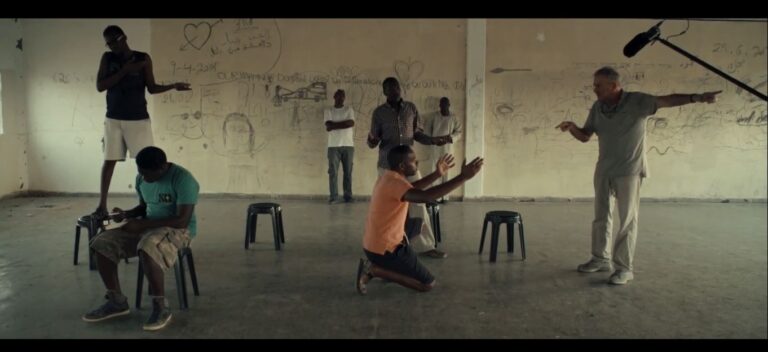The recent arrival in Israel of thousands of refugees from countries like Eritrea, Ethiopia, and Sudan has triggered a spate of hate crimes and mob violence. Asked about these asylum seekers in 2012, Likud-party member Miri Regev called them a “cancer.” For this comment, she later apologized—not to the African asylum-seekers but to Israeli cancer survivors, and she expressed regret for comparing them to Africans. Around that same time, Interior Minister Eli Yishai of the Shas Party told a reporter that “this country belongs to us, to the white man.” Continuing on, he stated that he would use “all the tools [necessary] to expel the foreigners, until not one infiltrator remains.” While the racial dynamics of Israel have been thoroughly examined with respect to both intra-Jewish tensions (Ashkenazi supremacy) and the Palestinian issue (white settler-colonialism), in this essay, I want to theorize Israeli whiteness with respect to the African refugees. Specifically, I will examine two recent Israeli documentaries dealing with African refugees—Hotline (dir. Silvina Landsmann, 2015) and Between Fences (dir. Avi Mograbi, 2016). Both openly demonstrate solidarity with the African asylum-seekers, but they do so in different ways, and if the former film leaves the racial hierarchies of Zionism intact, the latter works to shatter them.
Articles by Greg Burris
Greg Burris is Associate Professor of Media Studies at the American University of Beirut and the author of The Palestinian Idea: Film, Media, and the Radical Imagination (Temple University, 2019). His other writings on race, culture, and politics have appeared in CineAction, Cinema Journal, Electronic Intifada, Film International, Jadaliyya, Journal of Islamic and Muslim Studies, Middle Eastern Studies, and the anthologies Futures of Black Radicalism (Verso, 2017) and Global Raciality: Empire, PostColoniality, and DeColoniality (Routledge, 2018).
